Polarization was on the agenda as Mennonite Central Committee Alberta hosted its first-ever peace conference earlier this month.
Held November 3-4 in Calgary, “In Tune: Finding Harmony in a Polarized World” attracted participants from across denominational and professional lines.
“The idea for this conference came out of our world emerging from the pandemic,” said Ryan Siemens, MCC Alberta’s executive director. “We wanted to talk about polarization and how that’s impacted the church. We didn’t want to do something that was issue-based, but something that talked about the theory which could apply to all sorts of contexts.”
The first day of the conference was geared toward pastors and church leaders. Participants were invited to consider how centering their churches around Jesus can serve to counteract polarization in the pews.
Adam Dyer, executive director of the Jesus Collective, reminded participants that the church’s goal has never been to have everyone agree on everything.
“How can we become a church that can love the same-sex couple and the conservative couple—to become a space not of tolerance, but transformation?” Dyer asked. “There are aspects of Jesus that we can’t encounter without each other.”
In the afternoon session, Betty Pries, a specialist in mediation and conflict management, offered an introduction to what polarization is and how to welcome a both/and approach to divisive topics in churches and relationships.
The second day of the conference picked up a strong storytelling element as multiple speakers shared their personal experiences with overcoming polarization.
Ryan Dueck, pastor of Lethbridge Mennonite Church, recounted his church’s 2015 experience of welcoming Syrian refugees to the community.
The congregation partnered with two other churches to sponsor a family. Shortly after starting the sponsorship process, the photo of a Syrian toddler’s body on a beach in Greece made news around the world.
Dueck was inundated with calls from people wanting to help, and media outlets looking for comment. The sponsorship committee’s meetings typically drew six or seven people, but at the next meeting, more than 30 people showed up.
The outpouring of love and support brought Syrian families to Lethbridge, which Dueck describes as a “feel-good story.” The less feel-good part is that Dueck and his family received hate mail and threats of violence for his pro-refugee stance.
“I do this [welcome refugees] because it is my duty as a follower of Jesus Christ,” he said. “It’s our sacred duty to leave behind difference . . . God’s future has a right to make a demand on our present.”
The high point of the weekend was a fundraising event featuring Tareq Hadhad, a former Syrian refugee and the CEO of Peace by Chocolate. More than 70 people attended the fundraiser, feasting on chocolate fondue and listening to Hadhad’s story.
Hadhad and his extended family of more than 60 people fled from Syria to Lebanon in 2012.
“No one is born to immigrate,” he said, as he spoke of the trauma and hopelessness his family experienced.
Hadhad tried, unsuccessfully, to petition the embassies of various countries to grant his family immigrant status. Each door remained firmly closed.
One night, as Hadhad caught a cab back to his family’s place in the refugee camp, the driver suggested he try going to Canada. That suggestion turned the page to the next chapter of the Hadhad family’s story. In late 2015, they arrived in Antigonish, Nova Scotia.
Today, the family’s chocolatier business, Peace by Chocolate, is the third-largest employer in Antigonish.
“Small acts of kindness matter,” Hadhad said. “There is nothing good about war, except its ending. No one is to blame for being a refugee.”
The conference was just the medicine Marie Moyer, an attendee from Lethbridge Mennonite Church, needed.
“I wasn’t sure what to expect when I registered for the conference,” she said. “I guess I was looking for some inspiration sort of outside the daily drudgery, and the more we talked, the more I realized that I needed this.”
Rebecca Schnell, MCC Alberta’s comm- unity engagement coordinator, helped plan the conference.
“I think of peace like harmony in a song,” she said. “It’s okay if we’re not all singing the same note of agreement. Peace is like the notes in a chord. We want to avoid discord and create harmony.”
—Corrected November 21, 2023.


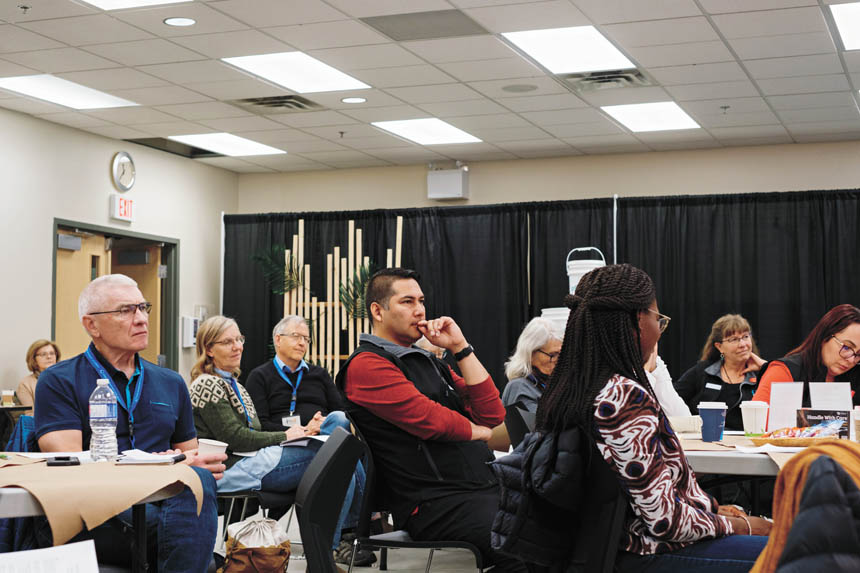


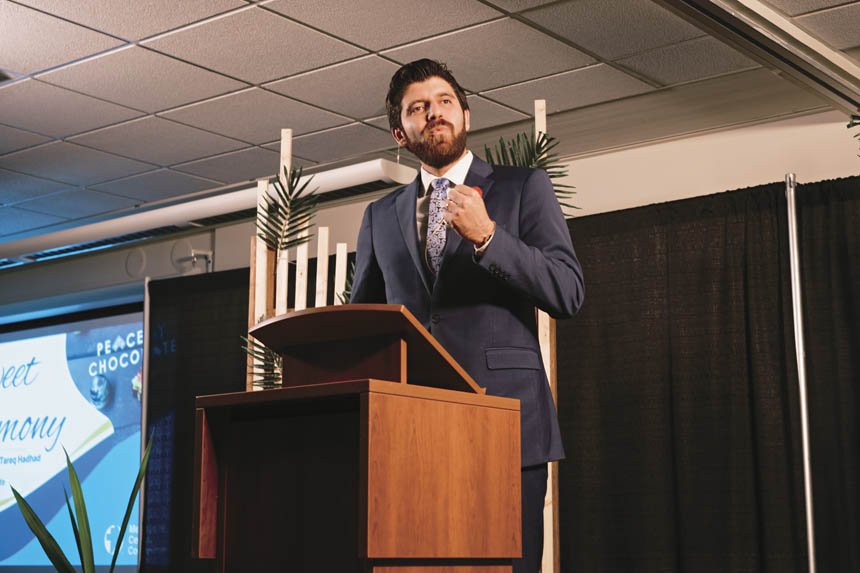
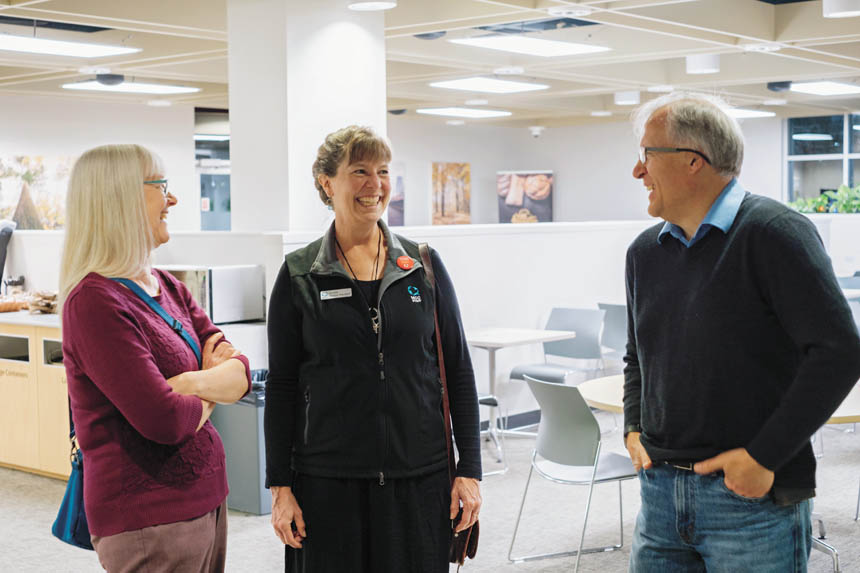
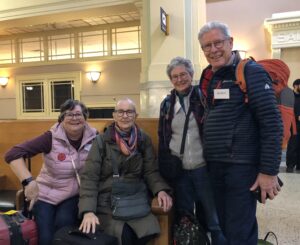
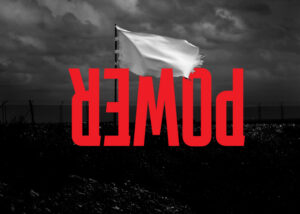
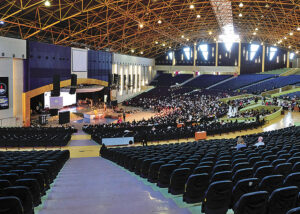

Leave a Reply
You must be logged in to post a comment.